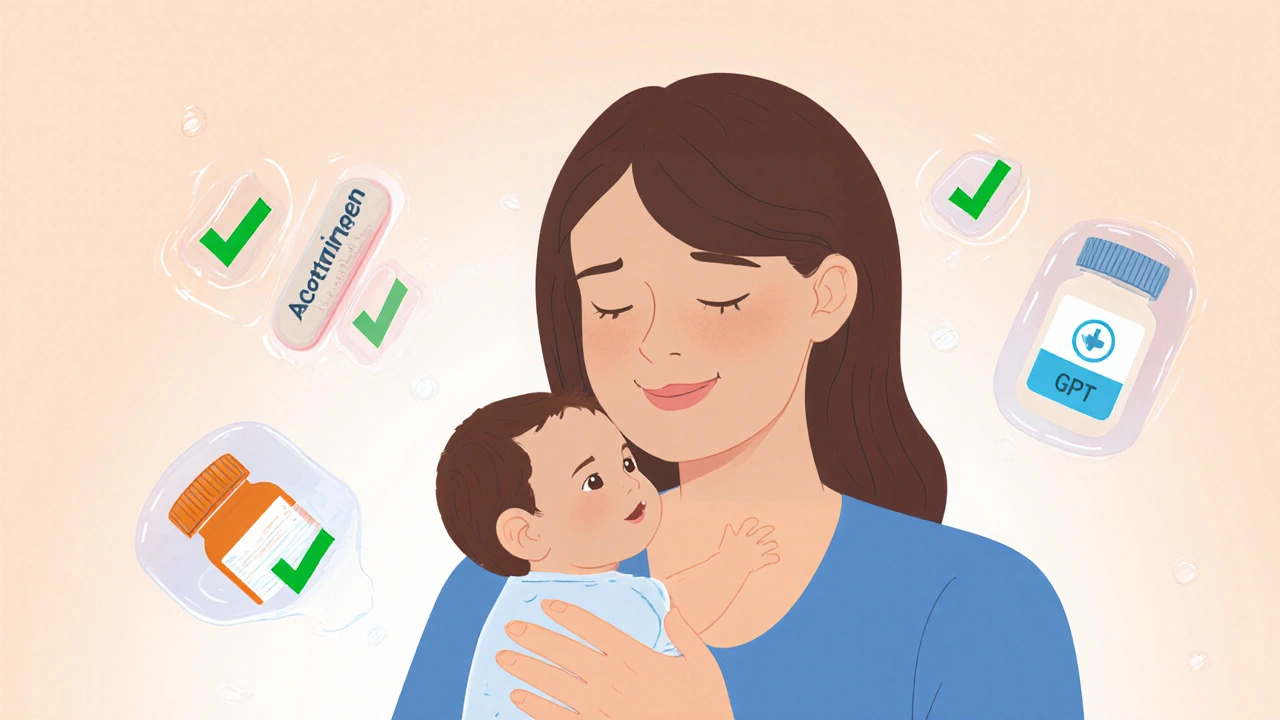Safe Drugs While Breastfeeding: What You Can and Can’t Take
When you're breastfeeding, every pill, supplement, or drop of medicine matters—not just for you, but for your baby. Safe drugs while breastfeeding, medications that pass into breast milk at levels unlikely to harm the infant. Also known as lactation-safe medications, these are chosen based on how much enters milk, how well the baby absorbs it, and whether the baby’s body can process it safely. Not all drugs are created equal. Some, like ibuprofen or certain antidepressants, are well-studied and generally fine. Others, like certain painkillers or herbal supplements, can build up in your baby’s system and cause drowsiness, poor feeding, or worse.
Breastfeeding medication safety, the practice of selecting drugs that minimize risk to the nursing infant while treating the mother’s condition. It’s not about avoiding meds entirely—it’s about choosing wisely. For example, if you need an antibiotic for an infection, amoxicillin is often preferred over tetracycline, which can affect bone and tooth development. If you’re managing depression, sertraline (Zoloft) has more safety data than some other SSRIs. Even common OTC drugs like pseudoephedrine can reduce milk supply, so timing and dosage matter. You don’t need to guess. Reliable resources track which drugs are low-risk, which require monitoring, and which should be avoided.
Medication transfer to breast milk, how much of a drug moves from your bloodstream into your milk. This depends on the drug’s molecular size, how fat-soluble it is, and how tightly it binds to proteins in your blood. Small, fat-soluble drugs like benzodiazepines cross more easily than large, water-soluble ones. But even if a drug gets into milk, it doesn’t mean it will affect your baby. Premature or newborn infants have immature livers and kidneys—they clear drugs slower than older babies. That’s why a medication safe for a 6-month-old might be risky for a 2-week-old.
Many moms worry about every cough drop or headache pill, but the truth is, most common meds won’t hurt your baby if used correctly. The real danger comes from silence—taking something because "it’s just a little one" or avoiding something because you’re scared, when a safer option exists. That’s why knowing what’s backed by research matters. The posts below cover real cases: which pain relievers are safest, how antidepressants affect milk supply, why some blood pressure meds are fine while others aren’t, and what to do if you’re prescribed something new. You’ll also find what to watch for in your baby—changes in sleep, feeding, or irritability—that could signal a reaction. No fluff. No fearmongering. Just clear, practical info from real studies and clinical experience.
Discover which medications are safe to take while breastfeeding, backed by evidence from LactMed, AAP, and CDC. Learn about pain relief, antidepressants, antibiotics, and what to avoid - without stopping breastfeeding.
Nov, 18 2025

